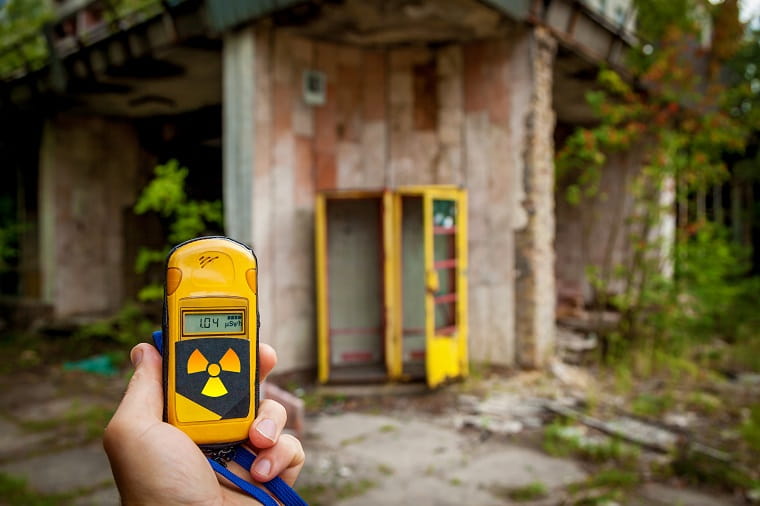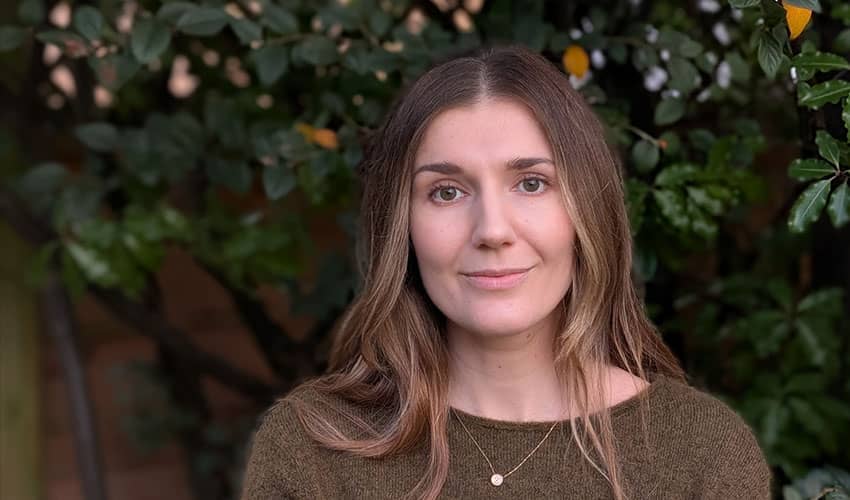UWE Bristol contributes to definitive report on how radiation affects environment

Researchers at the University of the West of England (UWE Bristol) have worked with international scientists to compile a definitive paper on the effects of radiation on the environment, based on investigations at Chernobyl and Fukushima. The document provides solid guidelines to regulators such as the Environment Agency (EA), which sets dose limits in England, on the amount of radioactivity that might harm flora and fauna.
The paper consolidates conclusions from the world's two largest scientific studies assessing the environment at Chernobyl, named TREE (standing for 'Transfer, Exposure, Effects' and which UWE Bristol is a part of), and the EU-funded COMET.
Professor Neil Willey, who is UWE Bristol's lead author on the paper, said: "This report dispels the exaggerated claims made in some other reports about the effects of radiation on the environment and the doses needed to damage flora and fauna.
"Some claim that minute levels of radiation found in trees today are having an adverse effect on them, but the damage to their cells is the result of the radiation they were exposed to 35 years ago during the nuclear disaster."
He added that when looking at damage to flora and fauna in the Chernobyl exclusion zone, many such reports have failed to take into account other factors, including human activity, which affects the environment.
The paper is seen as important given that over 50 new nuclear power stations are currently in construction around the globe because of the energy source's comparatively low carbon emissions. These facilities will increase the need to construct repositories for nuclear waste and understanding radiation's effects on the environment is likely to determine what kind of waste repository the UK will build.
"After thousands of years such repositories eventually erode and may leak, so you want to build them to last long enough that most of the radioisotopes will have disappeared if they do. The design and regulation of repositories is therefore partly dependent on what radiation levels are harmful to flora and fauna," said Professor Willey.
The academic explained that the report is enabling the EA to improve the protection of the environment.
He said that work at Chernobyl suggests that current regulations for radioactivity in the environment have a significant safety margin and that we shouldn't spend a disproportionate amount of time debating them when there are many other significant impacts on the environment to deal with such as pollution from cars.
The report is also helping the work of the International Commission on Radiological Protection - the world body that provides recommendations and guidance on radiological protection - because it provides the organisation with renewed confidence in the limits it uses to control radiation in the environment.
Professor Willey has spent time in the Chernobyl vicinity and in 2015 accompanied 15 PhD students to study the effects of radiation during a field trip in the zone.
He was also involved in an experiment with UWE Bristol students analysing seeds that had been sent up to space during an expedition with British astronaut Tim Peake.
Related news

16 February 2026
UWE Bristol researchers awarded grant to explore impact of asset recovery on offenders
UWE Bristol academics have been awarded funding to explore of the impact of asset recovery on deterring offender behaviour and disrupting crime networks.

10 February 2026
Work by UWE Bristol lecturer features in Government’s National Cancer Plan
Work by a UWE Bristol academic has been included in the Government’s National Cancer Plan.

23 January 2026
On-demand minibus services beneficial in rural areas but face financial challenges, trials suggest
Trials of ‘demand responsive transport’ minibus services boosted connectivity for people in rural and suburban areas, according to a new report produced by UWE Bristol researchers.

18 December 2025
UWE Bristol professor appointed National Institute for Health and Care Excellence CEO
Jonathan Benger CBE, Professor of Emergency Care at UWE Bristol, has been appointed as the new chief executive officer of the National Institute for Health and Care Excellence (NICE).

17 December 2025
Findings revealed from first UK study into experiences of mothers who are survivors of rape pregnancy
UWE Bristol academics have revealed the findings of the first UK-based study of the experiences of mothers who are survivors of rape pregnancy.

11 December 2025
Social media influencer work is far more demanding than it looks, research finds
A study exploring the mental health impacts of social media influencer work has revealed that life online is far more demanding than it appears.

25 November 2025
UWE Bristol experts join film Q&A exploring music and melodrama
Academics will take part in the Cary Comes Home Festival, with a post-screening Q&A exploring music, melodrama and emotional storytelling in classic cinema.

17 November 2025
Urgent reform needed to support ambulance-delivered end of life care, study finds
More than three quarters (78 per cent) of paramedics sometimes fear doing the wrong thing when caring for people in the last year of life, new research has found.

13 November 2025
Bristol’s screen industry experiences “boom-and-bust cycle” after post-pandemic recovery, new research from UWE Bristol finds
New research from UWE Bristol provides detailed insight into Bristol's screen sector.

13 November 2025
New AI research to revolutionise animal welfare
A UWE Bristol research project will combine behavioural science and AI to create technology that understands not only what animals do, but how they feel.

10 November 2025
Lessons from Low Traffic Neighbourhoods will drive better public engagement, study finds
Lessons from Low Traffic Neighbourhoods have informed a new toolkit to improve engagement with the public on challenging local street issues.

06 November 2025
First-of-its-kind study aims to help more people spend their final days at home
A new study will explore how architectural design could support end-of-life care in domestic settings.






